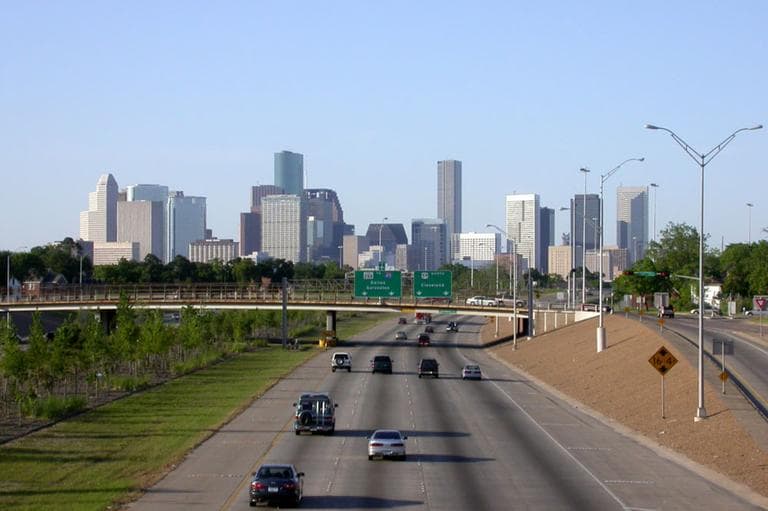Advertisement
Booming Or Busting: Cities And Regions After The Recession
ResumeWho’s hot and who’s not among American cities and regions. Who’s booming and why on this side of the Great Recession.

In so many ways, our gradual national comeback from the Great Recession is unevenly spread. One of those ways is geographic. Some cities, towns, regions have bounced back like gangbusters. Some have not.
If you’ve got a knowledge center, or an energy boom, or a cultural trump card, or some other secret sauce, you’ve got a big leg up. If you don’t, you’ve got a challenging road.
Richard Florida has been tracking regional up and downs for decades. Now he’s rolling out the post-bust map of the economic world.
This hour, On Point: hot and not on the new map of the American economy.
- Tom Ashbrook
Guests
Richard Florida, director of the Martin Prosperity Institute at the University of Toronto's School of Management. Co-Founder and Editor at Large at The Atlantic Cities, and senior editor at The Atlantic. His new piece in the Atlantic is "The Boom Towns and Ghost Towns of the New Economy."
Karl Dean, mayor of Nashville since 2007.
Closing Segment: Real Estate Check-In
Diana Olick, CNBC real estate correspondent, author of the Realty Check blog. (@diana_olick)
From Tom's Reading List
The Atlantic (Richard Florida): The Boom Towns and Ghost Towns of the New Economy — "Five years after the crash, with the national economy just beginning to return to something resembling normalcy, we can begin to trace the outlines of America’s emerging economic map—and take inventory of the places that are thriving, those that are declining, and those that are trying, in novel ways, to come back."
The Wall Street Journal: Hiring Spreads, but Only 14 Cities Top Prerecession Level -- "Employers are hiring more readily across the U.S., though only 14 of the nation's 100 biggest metropolitan areas have more jobs now than they did before the 2008-09 recession. Six of them are in Texas, according to researchers at the Brookings Institution, who recently analyzed local economic conditions through the end of 2012. All of the 14 appear to have benefited in some way from a stable employment base, anchored by either universities, government agencies or high-tech hubs, helping residents avoid the worst of the job losses suffered by other areas."
This program aired on September 26, 2013.